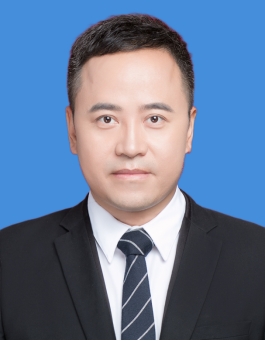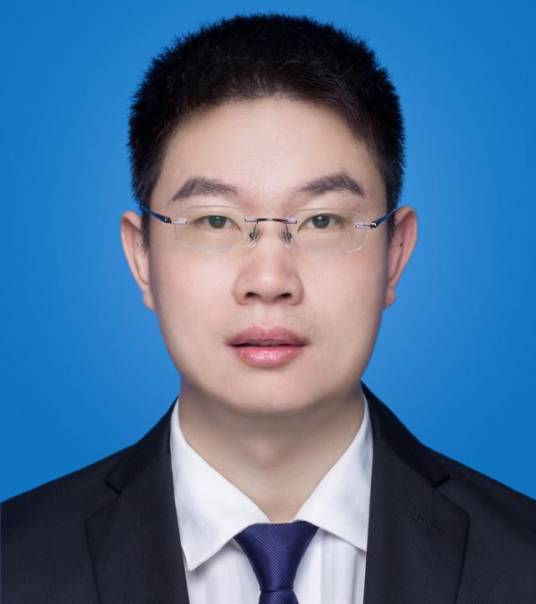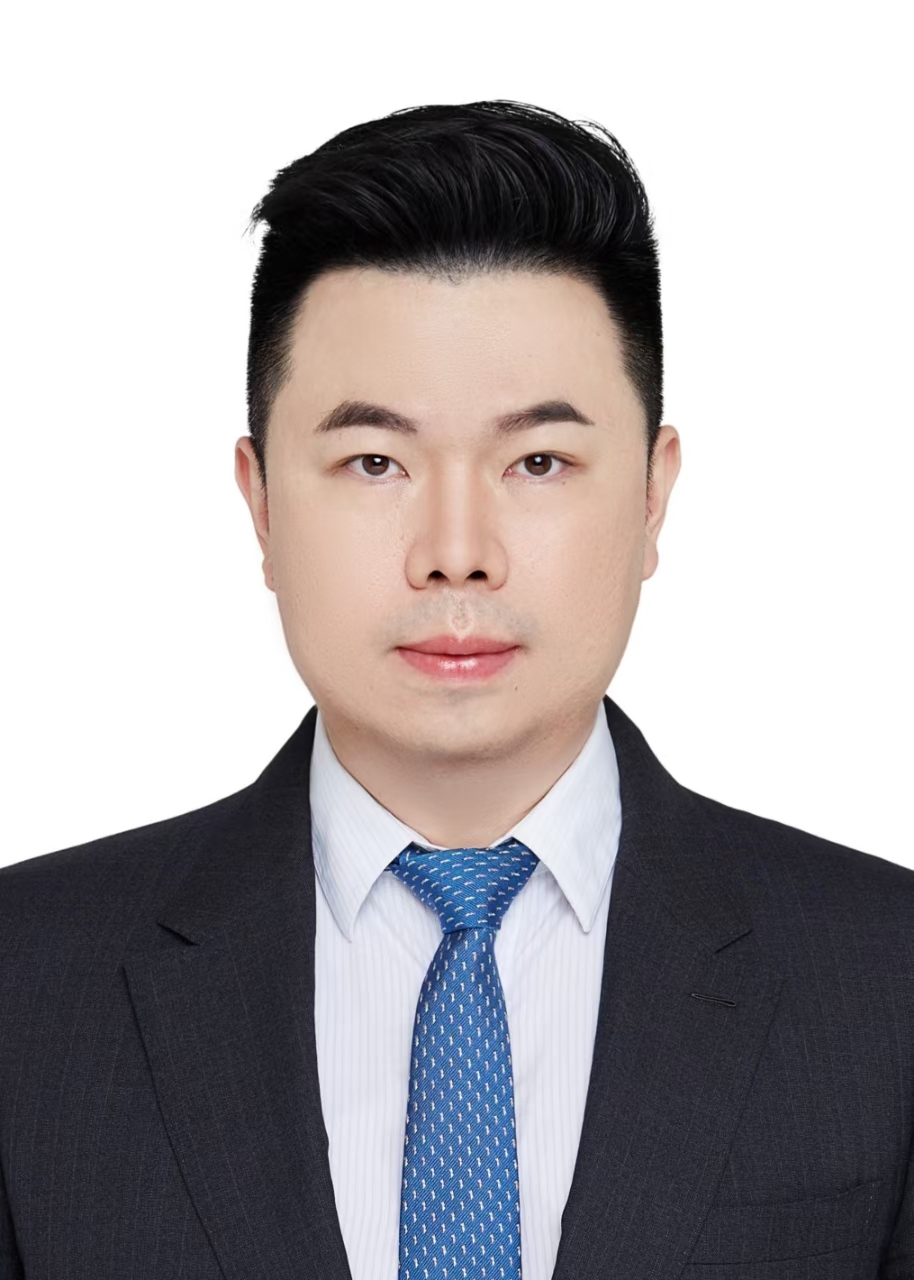

Prof. Hongwei Li, University of Electronic Science and Technology of China, China (IEEE Fellow)
李洪伟,教授,电子科技大学 (计算机科学与工程学院(网络空间安全学院)副院长、IEEE Fellow、国家级高层次人才)
Prof. Hongwei Li is the Associate Dean of the School of Computer Science and Engineering (School of Cyber Security) at the University of Electronic Science and Technology of China (UESTC). He is a Fellow of IEEE and was selected as a Distinguished Professor under China’s National High-Level Talent Program in 2019. Prof. Li serves as the group leader for the “Cyberspace Data Governance” direction of the Key Special Project on Cyberspace Security Governance under China’s 14th Five-Year Plan, initiated by the Ministry of Science and Technology. He is also the Director of a National Innovation and Talent Introduction Base for the discipline of data security governance. He holds several influential academic roles internationally, including Vice Chair of the IEEE Communications Society’s Technical Committee on Security and Privacy and Distinguished Lecturer of the IEEE Vehicular Technology Society. Prof. Li’s research focuses on data security and artificial intelligence security. He has published 62 papers in top-tier journals and conferences. His work has earned multiple prestigious awards, such as the Best Paper Award at IEEE ICPADS 2020, the First Prize of the National Science and Technology Progress Award (2019), the First Prize of the Wu Wenjun Artificial Intelligence Science and Technology Progress Award (2021), and the Second Prize of the Natural Science Award from the Chinese Institute of Electronics (2021).
Title: Exploring Security and Privacy Issues in Large Language Models
Abstract: With models such as DeepSeek and ChatGPT as representative examples, large language models (LLMs) are increasingly being applied across a wide range of domains. However, their deployment and usage still face numerous security and privacy challenges. This report provides a comprehensive analysis of the security and privacy issues associated with large language models from multiple dimensions, including real-world significance, technical background, existing challenges, and the research foundation of the team.

Prof. Zhuhong You, Northwestern Polytechnical University, China
尤著宏,教授,西北工业大学(国家级高层次人才)
Zhu-Hong You, male, PhD, professor and doctoral supervisor at the School of Computer Science, Northwestern Polytechnical University, and member of the Academic Committee of Northwestern Polytechnical University. Master's and PhD holders from the University of Science and Technology of China, postdoctoral fellows from Tongji University and the Hong Kong Polytechnic University, recipients of the National "Outstanding Youth" Science Fund, recipients of the 14th batch of "National Distinguished Experts" from the Organization Department of the CPC Central Committee, recipients of the National "Outstanding Youth" Science Fund, and recipients of the "Hong Kong Scholars" Program from the Ministry of Human Resources and Social Security. Mainly engaged in pattern recognition, big data analysis, and bioinformatics research Transactions on Neural Networks and Learning Systems、IEEE Transactions on Knowledge and Data Engineering、PLOS Computational Biology、Briefings in Bioinformatics More than 350 research papers and over 280 SCI indexed papers have been published in important academic journals at home and abroad, as well as international conferences such as AAAI, IJCNN, WCCI, and BIBM. Among them, there are 192 SCI papers as the first and corresponding author, and 62 papers in the first district of the Chinese Academy of Sciences. Published papers have been cited nearly 18000 times by internationally renowned journals and conferences (Google Scholar), with an H-index of 71. The highest citation count for a single paper is 595 times, with 246 papers cited more than 10 times. There are 10 ESI highly cited papers and 3 hot papers. It has been selected multiple times for the "Highly Cited Scholars List" by Elsevier and the top 2% of global scientists by Stanford University. Write one monograph and apply for 16 invention patents. He has successively won the first prize of the Provincial Natural Science Award (as the first author), the second prize of the Ministry of Education Natural Science Award (as the second author), and the second prize of the Chinese Society of Automation Natural Science Award (as the third author). Served as an editorial board member, guest editor, and member of several international conference program committees for over ten SCI journals.
Title: Biomedical Knowledge Graph Representation Learning: Application in Molecular Interactions Prediction
Abstract: One of the key issues in the field of biomedicine in the post-genomic era is to systematically understand and analyze the inter-molecular relationships among biomolecules. Complex life activities are undertaken by a variety of biochemical molecules, which interact with each other to maintain the normal physiological functions of the organism, and whose perturbations or disruptions will lead to malfunctions or complex diseases. Guided by the idea of reductionism, existing researches have conducted in-depth studies on the activities of single or very few kinds of molecules, but lack of global thinking on the network of multi-molecular interactions, ignoring its holistic and systematic nature. With the advancement of multiomics technology, single-cell sequencing technology and other research methods, a large amount of biomedical big data on intermolecular correlations has been rapidly accumulated, which challenges the traditional analysis and mining methods, but also provides valuable data support for us to explore the complex biomolecular correlation networks. This report combines two artificial intelligence techniques, knowledge graph and recommender system, by learning the low-dimensional representations of various biomolecules in the knowledge graph and multimodal fusion with biomolecular attribute features, and proposes a predictive mining method of molecular association graph based on graph machine learning on different scales of molecular association graph, this study will systematically reveal and construct different scales of molecular association graphs from molecular level to biomedical system level. molecular association maps at different scales from the molecular level to the biomedical system level.

Prof. Qi Wu, Shanghai Jiao Tong University, China
吴奇,教授,上海交通大学(国家级高层次人才)
Edmond Wu, Professor and Ph.D. Supervisor at Shanghai Jiao Tong University, is a recipient of the National Science Fund for Distinguished Young Scholars. His research focuses on brain-inspired computing, manned-unmanned teaming (MUM-T) in airborne and maritime domains, adversarial reasoning, game theory, and intelligent decision-making. He has led major national defense projects, key foundational enhancement programs, aircraft model R&D programs, and other national-level initiatives such as the Ye Qisun Key Program. He serves as an editorial board member for Robot, Journal of Electronics & Information Technology, and as an associate editor for seven IEEE Transactions journals, including IEEE Transactions on Neural Networks and Learning Systems and IEEE Transactions on Systems, Man, and Cybernetics: Systems. He has received the Yang Jiachi Science and Technology Award (Second Prize) and the Wu Wenjun Natural Science Award (Second Prize).
Title: Airborne platform collaboration and human-machine authority allocation
Abstract: "Human-machine matching and task collaboration" represent the future direction of human-machine integration. With the continuous advancement of machine autonomy, dynamic authority allocation between human and machine intelligence will become feasible. Under human authorization or supervision, machines will be capable of autonomously executing tasks, thereby enabling smoother, more efficient, and real-time coordination in aerial combat missions. This will significantly enhance the degree of human-machine integration. A prerequisite for effective human-machine collaboration is the machine’s ability to perceive and assess the pilot’s state in real time, ensuring that the pilot is in a normal condition and capable of making correct decisions and taking appropriate actions. The pilot's state encompasses physiological and psychological factors that may affect operational capacity, such as workload, fatigue, stress, and situational awareness. By continuously monitoring the pilot’s physiological and psychological status, and evaluating their operational capability and task performance in real time, the human-machine matching relationship and task allocation can be dynamically adjusted. This ensures that the overall performance of human-machine collaboration in aerial missions remains at an optimal level.

Prof. Dongrui Wu, Huazhong University of Science and Technology, China (IEEE Fellow)
伍冬睿,教授,华中科技大学(人工智能与自动化学院副院长、IEEE Fellow、全球前2%科学家)
Dongrui Wu (IEEE Fellow) is Professor and Deputy Director of the Key Laboratory of the Ministry of Education for Image Processing and Intelligent Control, School of Artificial Intelligence and Automation, Huazhong University of Science and Technology, Wuhan, China. His research interests include brain-computer interface, machine learning, computational intelligence, and affective computing. He has more than 200 publications (15000+ Google Scholar citations; h=65), with 6 outstanding paper awards. His team won National Champion of the China Brain-Computer Interface Competition in three years (2021/2022/2024). He is the Editor-in-Chief of IEEE Transactions on Fuzzy Systems.
Title: Accurate, Secure and Privacy-Preserving Brain-Computer Interfaces
Abstract: A brain-computer interface (BCI) enables direct communication between the brain and external devices. Electroencephalograms (EEGs) used in BCIs are weak, easily contaminated by interference and noise, non-stationary for the same subject, and varying across different subjects and sessions. Thus, sophisticated machine learning approaches are needed for accurate and reliable EEG decoding. Additionally, adversarial security and privacy protection are also very important to the broad applications of BCIs. This talk will introduce machine learning algorithms for accurate, secure and privacy-preserving BCIs.

Prof. Xin Luo, Southwest University, China (IEEE/AAIA Fellow)
罗辛,教授,西南大学 (计算机与信息科学学院·软件学院院长、国家级高层次人才、IEEE Fellow)
Xin Luo (Fellow, IEEE) received the B.S. degree in computer science from the University of Electronic Science and Technology of China, Chengdu, China, in 2005, and the Ph.D. degree in computer science from the Beihang University, Beijing, China, in 2011. He is currently a Professor of Data Science and Computational Intelligence with the College of Computer and Information Science, Southwest University, Chongqing, China. He has authored or coauthored over 400 papers (including over 160 IEEE Transactions/Journal papers) in the areas of Artificial Intelligence and Data Science. Dr. Luo was the recipient of the Outstanding Associate Editor Award from IEEE Access in 2018, IEEE/CAA Journal of Automatica Sinica in 2020, and from IEEE Transactions on Neural Networks and Learning Systems in 2022-2024. He is currently serving as an Associate Editor for IEEE Transactions on Neural Networks and Learning Systems, and IEEE/CAA Journal of Automatica Sinica. His page is https://scholar.google.com/citations?user=hyGlDs4AAAAJ&hl=zh-TW.
Title: High-Order Nonstandard Tensor Representation Learning
Abstract: High-order nonstandard tensors are typical data structures in big data and artificial intelligence applications. Accurate and efficient representation learning of such tensors is a crucial prerequisite for subsequent knowledge discovery and pattern recognition. In this study, we focus on representation learning methods for third-order non-standard tensors and propose a series of representation learning models based on the tensor CP decomposition principle, preliminarily achieving efficient and accurate representation learning for third-order non-standard tensors. Related papers have been published in journals such as IEEE T-PAMI, T-KDE, and T-CYB.